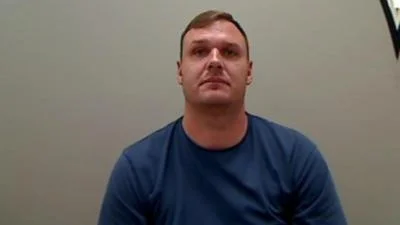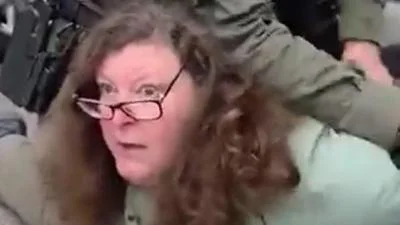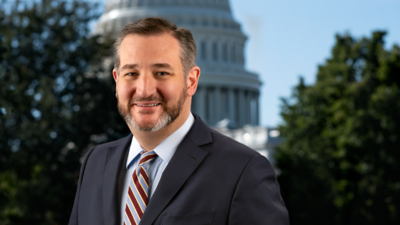Ann M. Williams, Illinois State Representative from the 11th District | Official website
Ann M. Williams, Illinois State Representative from the 11th District | Official website
According to the Illinois General Assembly site, the legislature summarized the bill's official text as follows: "Amends the School Code. In provisions concerning radon testing, provides that every school building of a school district that is occupied or will be occupied shall be tested by January 1, 2029 and shall be retested every 5 years thereafter for radon (instead of recommending that every occupied school building of a school district be tested every 5 years for radon). Provides that all new schools of a school district shall be built using radon resistant new construction techniques in accordance with the American National Standards Institute/American Association of Radon Scientists and Technologists CC-1000, Soil Gas Control Systems in New Construction of Multifamily, School, Commercial and Mixed-Use Buildings standard or a successor standard (instead of recommending that new schools of a school district be built using radon resistant new construction techniques, as shown in the United States Environmental Protection Agency document, Radon Prevention in the Design and Construction of Schools and Other Large Buildings). Removes a provision allowing a person to perform radon screening tests without a license. Makes changes concerning the exemption. Provides that if radon is found to exceed specified levels, then the school district shall (instead of may) hire a licensed radon professional to perform confirmatory measurements (instead of to perform measurements before any mitigation decisions are made). Sets forth provisions concerning mitigation. Provides that a school district may use life safety funds, if available, for radon testing and mitigation. Preempts home rule powers."
The following is our breakdown, based on the actual bill text, and may include interpretation to clarify its provisions.
In essence, this bill mandates that every school building occupied or to be occupied in Illinois must undergo radon testing by Jan. 1, 2029, with retesting every five years, following rules set by the Illinois Emergency Management Agency and Office of Homeland Security. New schools must incorporate radon-resistant construction techniques per the American National Standards Institute guideline, and school districts must maintain a record of all test results, making them available to the public. If radon levels exceed 4.0 pCi/L, a licensed professional must perform confirmatory tests, and mitigation is required within two years if necessary. Additionally, school districts can use life safety funds for testing and mitigation, and the bill preempts home rule powers, ensuring uniformity across the state. The effective date of the bill is not specified.
Ann M. Williams has proposed another eight bills since the beginning of the 104th session.
Williams graduated from the University of Iowa in 1991 with a BA and again in 1994 from Drake University Law School with a JD.
Ann M. Williams is currently serving in the Illinois State House, representing the state's 11th House District. She replaced previous state representative Kathleen C. Moore in 2021.
Bills in Illinois follow a multi-step legislative process, beginning with introduction in either the House or Senate, followed by committee review, floor debates, and votes in both chambers before reaching the governor for approval or veto. The General Assembly operates on a biennial schedule, and while typically thousands of bills are introduced each session, only a fraction successfully pass through the process to become law.
You can read more about bills and other measures here.
| Bill Number | Date Introduced | Short Description |
|---|---|---|
| HB3691 | 02/07/2025 | Amends the School Code. In provisions concerning radon testing, provides that every school building of a school district that is occupied or will be occupied shall be tested by January 1, 2029 and shall be retested every 5 years thereafter for radon (instead of recommending that every occupied school building of a school district be tested every 5 years for radon). Provides that all new schools of a school district shall be built using radon resistant new construction techniques in accordance with the American National Standards Institute/American Association of Radon Scientists and Technologists CC-1000, Soil Gas Control Systems in New Construction of Multifamily, School, Commercial and Mixed-Use Buildings standard or a successor standard (instead of recommending that new schools of a school district be built using radon resistant new construction techniques, as shown in the United States Environmental Protection Agency document, Radon Prevention in the Design and Construction of Schools and Other Large Buildings). Removes a provision allowing a person to perform radon screening tests without a license. Makes changes concerning the exemption. Provides that if radon is found to exceed specified levels, then the school district shall (instead of may) hire a licensed radon professional to perform confirmatory measurements (instead of to perform measurements before any mitigation decisions are made). Sets forth provisions concerning mitigation. Provides that a school district may use life safety funds, if available, for radon testing and mitigation. Preempts home rule powers. |
| HB3494 | 02/07/2025 | Creates the Protect Health Data Privacy Act. Provides that a regulated entity shall disclose and maintain a health data privacy policy that clearly and conspicuously discloses specified information. Sets forth provisions concerning health data privacy policies. Provides that a regulated entity shall not collect, share, or store health data, except in specified circumstances. Provides that it is unlawful for any person to sell or offer to sell health data concerning an individual without first obtaining valid authorization from the individual. Provides that a valid authorization to sell individual health data must contain specified information; a copy of the signed valid authorization must be provided to the individual; and the seller and purchaser of health data must retain a copy of all valid authorizations for sale of health data for 6 years after the date of its signature or the date when it was last in effect, whichever is later. Sets forth provisions concerning the consent required for collection, sharing, and storage of health data. Provides that an individual has the right to withdraw consent from the processing of the individual's health data. Provides that it is unlawful for a regulated entity to engage in discriminatory practices against individuals solely because they have not provided consent to the processing of their health data or have exercised any other rights provided by the provisions or guaranteed by law. Sets forth provisions concerning an individual's right to confirm whether a regulated entity is collecting, selling, sharing, or storing any of the individual's health data; an individual's right to have the individual's health data that is collected by a regulated entity deleted; prohibitions regarding geofencing; and individual health data security. Provides that any person aggrieved by a violation of the provisions shall have a right of action in a State circuit court or as a supplemental claim in federal district court against an offending party. Provides that the Attorney General may enforce a violation of the provisions as an unlawful practice under the Consumer Fraud and Deceptive Business Practices Act. Defines terms. Makes a conforming change in the Consumer Fraud and Deceptive Business Practices Act. |
| HB3525 | 02/07/2025 | Amends the Public Utilities Act. Provides that a gas utility may cease providing service if the Illinois Commerce Commission determines that adequate substitute service is available at a reasonable cost to support the existing end uses of the affected utility customers. Provides for cost-effective energy efficiency measures for natural gas utilities that supersede existing provisions concerning natural gas energy efficiency programs and take effect beginning January 1, 2027. Provides that gas main and gas service extension policies shall be based on the principle that the full incremental cost associated with new development and growth shall be borne by the customers that cause those incremental costs. Provides that, no later than 60 days after the effective date of the amendatory Act, the Commission shall initiate a docketed rulemaking reviewing each gas public utility tariff that provides for gas main and gas service extensions without additional charge to new customers in excess of the default extensions as specified in administrative rule. Adds the Clean Building Heating Law Article to the Act, with provisions concerning emissions standards for heating in buildings, as well as related and other provisions. Adds the 2050 Heat Decarbonization Standard Article to the Act, with provisions concerning options for compliance, measures for customer emission reduction, customer emission reductions, tradable clean heat credits, banking of emission reductions, equity in emission reductions, enforcement, the 2050 Heat Decarbonization Pathways Study, gas infrastructure planning, a study on gas utility financial incentive reform, and reporting requirements. Adds the Statewide Navigator Program Law Article to the Act, with provisions concerning creation of a statewide navigator program, as well as related and other provisions. Amends the Energy Transition Act to add electrification industries to clean energy jobs. Effective immediately. |
| HB3609 | 02/07/2025 | Provides that the amendatory Act may be referred to as the Thermal Energy Network and Jobs Acts. Sets forth a statement of legislative findings and intent. Amends the Public Utilities Act. Defines "thermal energy" and "thermal energy network". Requires the Illinois Commerce Commission to initiate a proceeding within 6 months after the effective date of the amendatory Act to support the development of pilot thermal energy networks. Provides that within 10 months after the effective date of the amendatory Act, every gas public utility, electric public utility, or combination public utility serving over 100,000 customers shall file with the Commission a petition seeking Commission-approval of at least one and no more than 3 proposed pilot thermal energy network projects. Requires every gas public utility, electric public utility, or combination public utility constructing or operating a Commission-approved pilot thermal energy network project to report to the Commission, on a quarterly basis and until completion of the pilot thermal energy network project, the status of each pilot thermal energy network project. Requires every gas public utility, electric public utility, or combination public utility constructing or operating a Commission-approved pilot thermal energy network project to demonstrate that it has entered into a labor peace agreement with a bona fide labor organization that is actively engaged in representing its employees. Requires the Commission to adopt specified rules within 4 years after the completion of the construction of all thermal energy network projects. Provides that a gas public utility, electric public utility, or combination public utility required to develop a pilot thermal energy network project shall be permitted to recover all reasonable and prudently incurred costs associated with the development, construction, and operation of one or more pilot thermal energy network projects through general rates or through rates set in a Multi-Year Rate Plan. Effective immediately. |
| HB3638 | 02/07/2025 | Amends the Workplace Transparency Act. Provides that no contract, agreement, clause, covenant, waiver, or other document shall prohibit, prevent, or otherwise restrict an employee, prospective employee, or former employee from engaging in concerted activities to address work-related issues. Provides that any agreement, clause, covenant, or waiver that is a mutual condition of employment or continued employment may include provisions that would otherwise be against public policy if it acknowledges the right of the employee or prospective employee to engage in concerted activities to address work-related issues. Provides that an employee, prospective employee, or former employee and an employer may enter into a valid and enforceable settlement or termination agreement that includes promises of confidentiality related to alleged unlawful employment practices if the confidentiality provision expires no later than 5 years after the alleged unlawful employment practices occurred. Provides for the recovery of consequential damages incurred in challenging a contract for violation of the Act. Makes other changes. |
| HB3712 | 02/07/2025 | Creates the Privacy Protections for Location Information Derived from Electronic Devices Act. Makes it unlawful for a covered entity to collect or process an individual's location information except for a permissible purpose. Provides that before collecting or processing an individual's location information for one of those permissible purposes, a covered entity shall provide the individual with a copy of the location privacy policy and obtain consent from that individual Authorizes a civil action in which if the plaintiff prevails, the court may award (1) actual damages including damages for emotional distress, or $5,000 per violation, whichever is greater; (2) punitive damages; and (3) any other relief. Provides that in addition to any relief awarded, the court shall award reasonable attorney's fees and costs to any prevailing plaintiff. Defines terms. Makes other changes. |
| HB3764 | 02/07/2025 | Amends the Illinois Highway Code. Provides that the prohibition on incurring development costs, placing improvements upon or under land, rebuilding, altering, or adding to any existing structure when widening or adding to the State highway system does not apply if the Department of Transportation has not held its mandated public hearing. Provides that if the Department does not hold a public hearing regarding the viability and feasibility of a protected corridor, the protected corridor shall be abolished. |
| HB3779 | 02/07/2025 | Creates the Municipal and Cooperative Electric Utility Planning and Transparency Act. Provides that, by November 1, 2025, and by November 1 every 3 years thereafter, all electric cooperatives with members in the State, municipal power agencies, and municipalities shall file with the Illinois Power Agency an integrated resource plan. Sets forth provisions concerning the plan. Amends the Illinois Power Agency Act. Authorizes the Illinois Power Agency to develop capacity procurement plans and conduct competitive procurement processes for the procurement of capacity needed to ensure environmentally sustainable long-term resource adequacy across the State at the lowest cost over time. Amends the Public Utilities Act. Changes the cumulative persisting annual savings goals for electric utilities that serve less than 3,000,000 retail customers but more than 500,000 retail customers for the years of 2025 through 2030. Provides that the cumulative persisting annual savings goals beyond the year 2030 shall increase by 0.9 (rather than 0.6) percentage points per year. Changes the requirements for submitting proposed plans and funding levels to meet savings goals for an electric utility serving more than 500,000 retail customers (rather than serving less than 3,000,000 retail customers but more than 500,000 retail customers). Provides that an electric utility that has a tariff approved within one year of the amendatory Act shall also offer at least one market-based, time-of-use rate for eligible retail customers that choose to take power and energy supply service from the utility. Sets forth provisions regarding the Illinois Commerce Commission's powers and duties related to residential time-of-use pricing. Provides that each capacity procurement event may include the procurement of capacity through a mix of contracts with different terms and different initial delivery dates. Sets forth the requirements of prepared capacity procurement plans. Requires each alternative electric supplier to make payment to an applicable electric utility for capacity, receive transfers of capacity credits, report capacity credits procured on its behalf to the applicable regional transmission organization, and submit the capacity credits to the applicable regional transmission organization under that regional transmission organization's rules and procedures. Makes other changes. |
| HB2582 | 02/04/2025 | Amends the Open Meetings Act. Provides that for a 3-member body, 2 members of the body constitute a quorum, and the affirmative vote of 2 members is necessary to adopt any motion, resolution, or ordinance unless a greater number is otherwise provided. Provides that a Chicago Police District Council may hold a closed meeting involving public safety concerns to discuss (i) an ongoing, prior, or future law enforcement or official misconduct investigation or allegation thereof involving specific individuals or (ii) other topics that if discussed in an open meeting would pose an unreasonable risk to an ongoing criminal investigation or an unreasonable risk to the safety of specific individuals. Provides that an agenda for each regular meeting of a public body must be posted the principal office of the public body if such an office exists. Provides that if a public body has a website that is maintained by its full-time staff but does not have a principal office or single building where meetings are regularly held, that body is deemed to have complied with the requirement to post physical notice at the office or building of the meeting if the notice is timely posted on the public body's website. Excludes from the definition of "meeting" for a Chicago Police District Council a gathering of 2 members, except if gathered for a regularly scheduled meeting or otherwise gathered to adopt any motion, resolution, or ordinance. Provides a Chicago Police District Council may hold meetings by audio or video conference without the physical presence of the members under certain conditions except for required regularly scheduled meetings. |
| HB2658 | 02/04/2025 | Amends the Illinois Vehicle Code. Allows a person to request an informal hearing regarding a suspension, revocation, or denial of the issuance of a license, permit, registration, or certificate of title at a Secretary of State driver services facility. Provides that if a person is convicted of a specified offense and the use of alcohol or other drugs is stated as an element of the offense, the Secretary may issue to the person a restricted driving permit granting the privilege of driving a motor vehicle 6 days per week, 12 hours per day within a 200-mile radius of the person's residence for any legal purpose. In provisions regarding the mandatory revocation of a license or permit, the discretionary authority to suspend or revoke a license or permit, and the period of suspension, provides that some convictions may be based on a similar out-of-state offense or similar offense committed on a military installation. Allows the Secretary to grant an employment exception to the prohibition against driving a vehicle that is not equipped with an ignition interlock device if the person is operating an occupational vehicle owned or leased by that person's employer when used solely for employment purposes. Makes other and conforming changes. |
| HB1305 | 01/13/2025 | Amends the Environmental Protection Act. Provides that the filing fees for specified petitions shall be $250 (rather than $75). |





 Alerts Sign-up
Alerts Sign-up